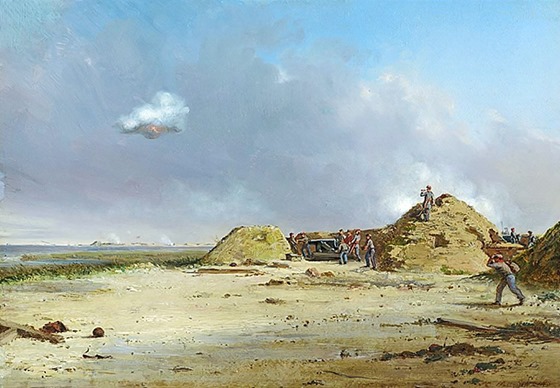February 25.—The following was published in Richmond, Va.:
“General Bragg has been assigned to duty in Richmond as consulting and advisory General. We regard the appointment as one very proper, and believe that it will conduce to the advancement and promotion of the cause. General Bragg has unquestionable abilities, which eminently fit him for such a responsible position. The country will be pleased to see his experience and information made use of by the President. His patriotism and zeal for the public service are fully recognized and appreciated by his countrymen. The duties of the commander-in-chief, who, under the constitution, can be no other than the President, are most arduous, and require much aid and assistance as well as ability and experience. General Bragg has acquired, by long service, that practical experience necessary to the position to which he is assigned by the general order published in to-day’s Enquirer.
“An erroneous impression obtains as to the nature of this appointment of General Bragg. He is not and cannot be commander-in-chief. The Constitution of the confederate States makes the President the commander-in-chief. General Bragg is detailed for duty in Richmond ‘under’ the President He does not rank General Lee nor General Johnston. He cannot command or direct them, except ‘by command of the President.’ His appointment has been made with the knowledge and approval of Generals Cooper, Lee, Johnston, and Beauregard, all his superiors in rank, who, knowing and appreciating the usefulness and ability of General Bragg, concur in his appointment by the President.—Richmond Enquirer.
—Fort Powell, situated below Mobile, Ala., was bombarded by the ships belonging to the National fleet.—The British sloop Two Brothers, from Nassau, N. P., was captured in Indian River, abreast of Fort Capron, Florida, by the National bark Roebuck.











